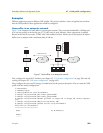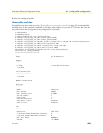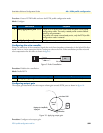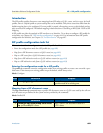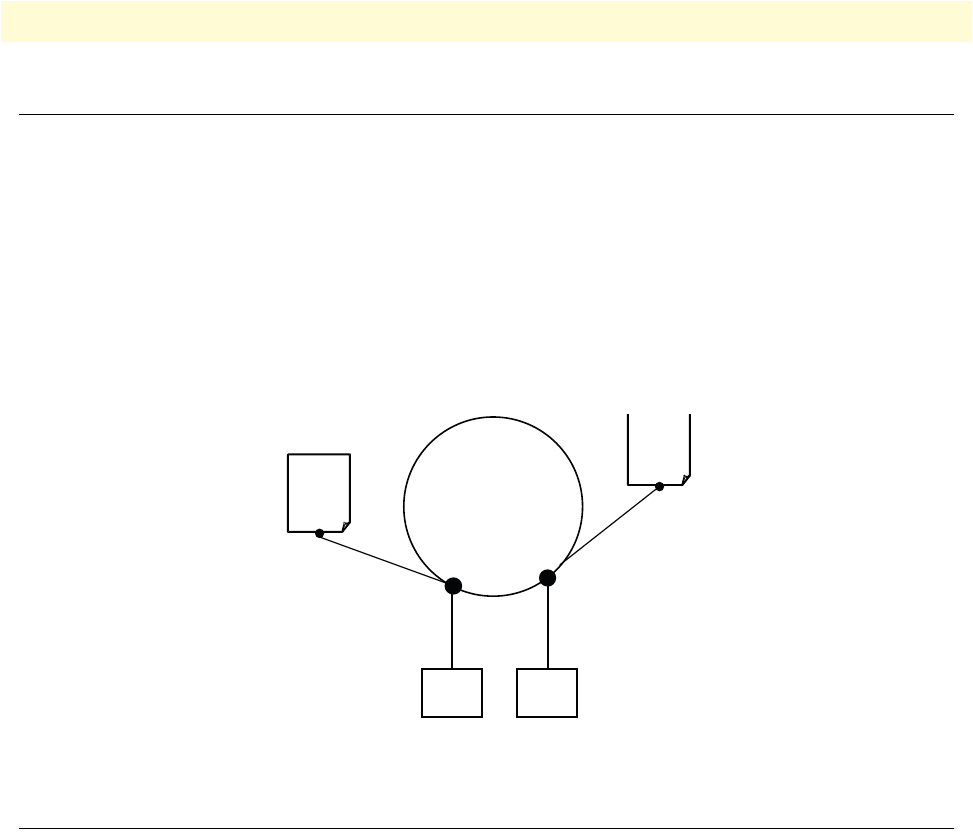
Introduction 598
SmartWare Software Configuration Guide 48 • PSTN profile configuration
Introduction
This chapter gives an overview of PSTN profiles, and describes how they are used and the tasks involved in
PSTN profile configuration.
A PSTN profile is a container for all datapath-related settings on PSTN connections. It can be assigned to
PSTN interfaces in context CS. If no profile is specified in a particular interface, the profile default is used. The
settings apply to all calls crossing the interface. Figure 8 illustrates the relationship between PSTN profiles and
CS interfaces. The following components are configurable:
• Echo canceller
• Output gain
Figure 8. PSTN profile association
PSTN profile configuration task list
The following tasks describe components that can be configured through the PSTN profile.
• Creating a PSTN profile
• Configuring the echo canceller (see page 599)
• Configuring output gain (see page 599)
If a PSTN profile is modified, the saved modification is applied to all open calls and is valid for all future calls
on the interface using this PSTN profile.
Creating a PSTN profile
Before configuring voice parameters, a PSTN profile must be created. Each PSTN profile has a name that can
be any arbitrary string of not more than 25 characters. When you create the PSTN profile, the PSTN profile
configuration mode appears so you can configure PSTN components.
Note The PSTN profile named default always exists in the system. It is used by all
interface components if there is no other PSTN profile available. If PSTN
parameters are the same throughout all interfaces, you can simply change the
profile default instead of creating a new profile.
Context CS
“switch”
PSTN
Profile
B
PSTN
Profile
A
ISDN
port
FXS
port




